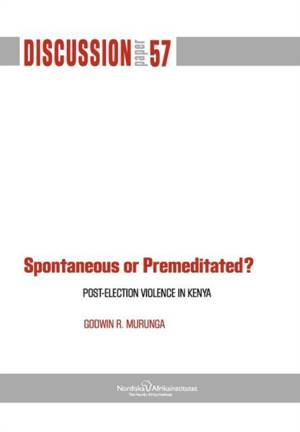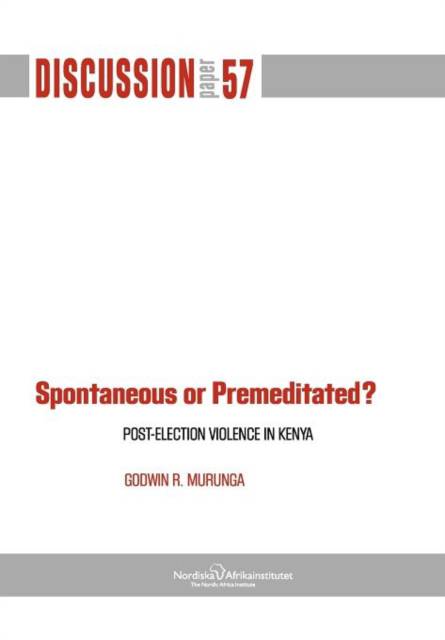
- Afhalen na 1 uur in een winkel met voorraad
- Gratis thuislevering in België vanaf € 30
- Ruim aanbod met 7 miljoen producten
- Afhalen na 1 uur in een winkel met voorraad
- Gratis thuislevering in België vanaf € 30
- Ruim aanbod met 7 miljoen producten
Zoeken
€ 18,95
+ 37 punten
Omschrijving
This Discussion Paper examines the high levels of post-electoral violence that followed the 2007 Kenyan elections. While noting that the conflict was triggered by the incumbent party's abuse of the electoral process with the complicity of certain state agencies, the author traces the background causes to the long pent-up grievances among the majority of Kenyan peoples, alienated from and oppressed by a fractious but predatory ruling elite. The paper provides insights into the roots and nature of Kenya's post-election violence; its manifestations in various regions of the country; and the roles of the ruling Party of National Unity and the opposition Orange Democratic Movement, the police and the international community. Overall, it provides a highly informative and critical account of the unprecedented levels of post-electoral violence in Kenya, exploring its complex ramifications, and the prospects for justice, reconciliation and democratic governance.
Specificaties
Betrokkenen
- Auteur(s):
- Uitgeverij:
Inhoud
- Aantal bladzijden:
- 60
- Taal:
- Engels
Eigenschappen
- Productcode (EAN):
- 9789171066947
- Verschijningsdatum:
- 24/10/2011
- Uitvoering:
- Paperback
- Formaat:
- Trade paperback (VS)
- Afmetingen:
- 170 mm x 244 mm
- Gewicht:
- 108 g

Alleen bij Standaard Boekhandel
+ 37 punten op je klantenkaart van Standaard Boekhandel
Beoordelingen
We publiceren alleen reviews die voldoen aan de voorwaarden voor reviews. Bekijk onze voorwaarden voor reviews.








